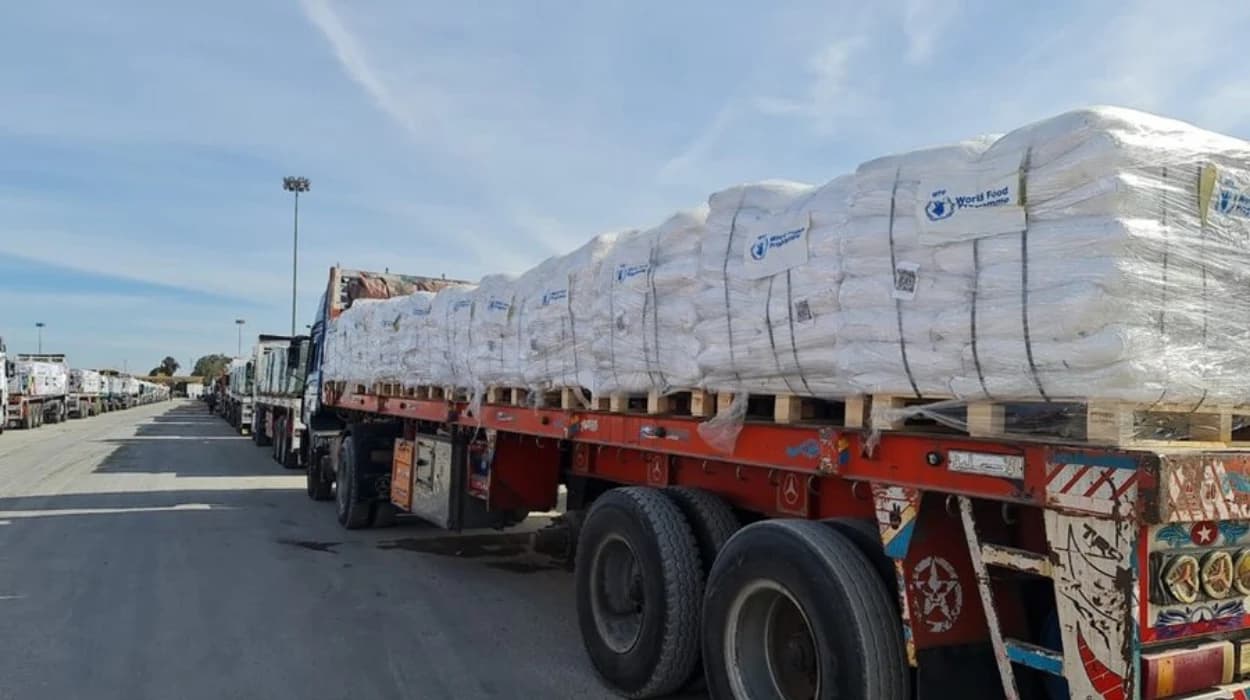Israel plans to reduce or stop humanitarian aid—including
airdrops and aid truck deliveries—into parts of northern Gaza as it intensifies
its offensive against Hamas, declaring Gaza City a combat zone. This move comes
amid escalating violence and rising civilian casualties, with uncertainty
around the timing of aid suspension and ongoing international concern over the
humanitarian crisis.
Israel's Announcement to Slow or Halt Aid in Northern Gaza
As reported by Julia Frankel and Wafaa Shurafa of The
Independent, an Israeli official disclosed on Saturday that Israel will soon
slow or halt humanitarian aid into parts of northern Gaza while expanding its
military actions to cripple Hamas. This includes stopping airdrops over Gaza City in coming days and reducing aid trucks entering the northern Gaza Strip as
part of a plan to relocate hundreds of thousands of residents southwards.
Declaration of Gaza City as a Combat Zone
On Friday, Israel officially declared Gaza City a combat
zone, describing it as a stronghold of Hamas and alleging that a network of
tunnels remains active despite numerous previous raids over the 23-month-long
conflict. This declaration aligns with Israel's announcement weeks earlier
about broadening its offensive in Gaza City, where hundreds of thousands are
sheltering amid severe food shortages.
Intensified Military Campaign and Rising Civilian Deaths
Israeli forces have increased bombardments on Gaza City's
outskirts, with footage from AP showing large explosions overnight Friday.
Concurrently, the death toll in Gaza has risen above 63,000 people since the
conflict began. Health officials at Awda Hospital reported that on Saturday,
four civilians were killed by Israeli gunfire while attempting to access aid in
central Gaza. The exact timeline for the aid suspension and cessation of
airdrops remains unclear, but as of Saturday, no airdrops had occurred for
several days—a departure from the prior near-daily deliveries.
Details on Aid Delivery and Tactical Pauses
Earlier in the conflict, according to NPR, Israel
implemented a daily 10-hour pause in fighting in densely populated Gaza
regions, including Gaza City, Deir al-Balah, and Muwasi, to allow humanitarian
aid entry and air drops of essential supplies such as flour and sugar. This
pause was part of an effort to address rising hunger and international
criticism of Israel's restrictions on aid. The pause involved secure corridors
for aid distribution, coordinated with the United Nations and humanitarian
groups.
The Israeli military also declared daylong "tactical
pauses" in southern Gaza to facilitate aid truck entry through the Kerem
Shalom crossing, the main entry for aid supplies, and to ensure safe transport
along key routes. However, aid deliveries have been insufficient compared to
needs, with the UN reporting the average daily truck deliveries in May and June
far below what is required.
International Reactions and Humanitarian Concerns
The United Nations and international humanitarian
organisations have repeatedly warned of a looming famine in Gaza due to aid
restrictions. Images of malnourished children from Gaza have intensified global
condemnation, including from close Israeli allies urging an end to the conflict
and humanitarian crisis. Mer Aloursh, Director-General of Gaza's Health
Ministry, highlighted the dire need for medical supplies and aid, warning that
delays translate into funerals.
Senior Hamas official Mahmoud Merdawi accused Israel of
using the humanitarian situation to improve its international image rather than
genuinely save lives, warning that Israel will face consequences for its
actions.
Historical Context of Aid Restrictions
Reuters reported that in June, Israel halted aid entry into
northern Gaza but continued allowing aid from the south, following intelligence
that Hamas was appropriating humanitarian supplies. This included images of
armed masked men on aid trucks, which clan leaders said were protecting rather
than stealing the aid. Israeli Prime Minister Benjamin Netanyahu ordered a
military strategy to prevent Hamas control over aid, underscoring the security
concerns influencing Israel's restrictions.
The combination of halted or slowed aid deliveries and
intensified military operations is exacerbating Gaza’s humanitarian crisis. Aid
organisations struggle to distribute supplies amid security concerns and a lack
of consistent access. Over one million Palestinians, many displaced multiple
times, live in overcrowded, unsanitary conditions in southern and central Gaza,
facing severe shortages of food, medicine, and fuel.
